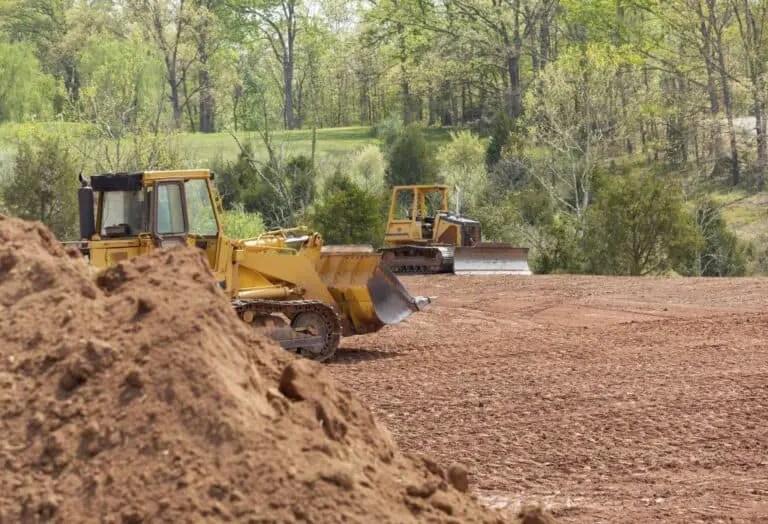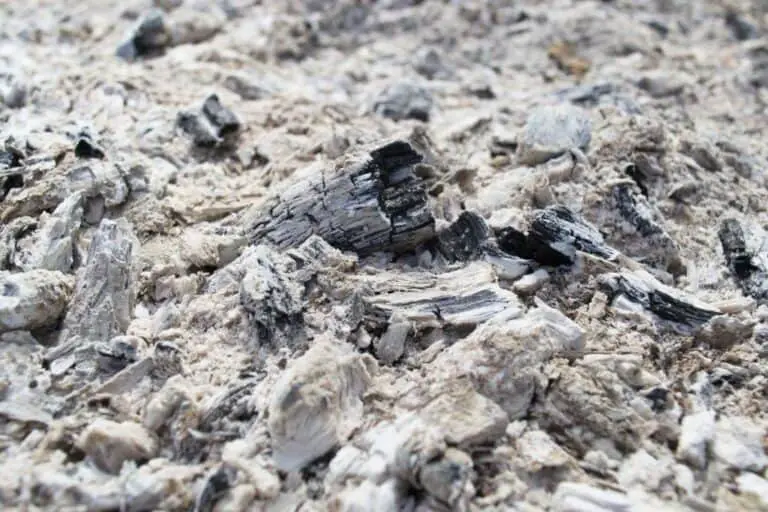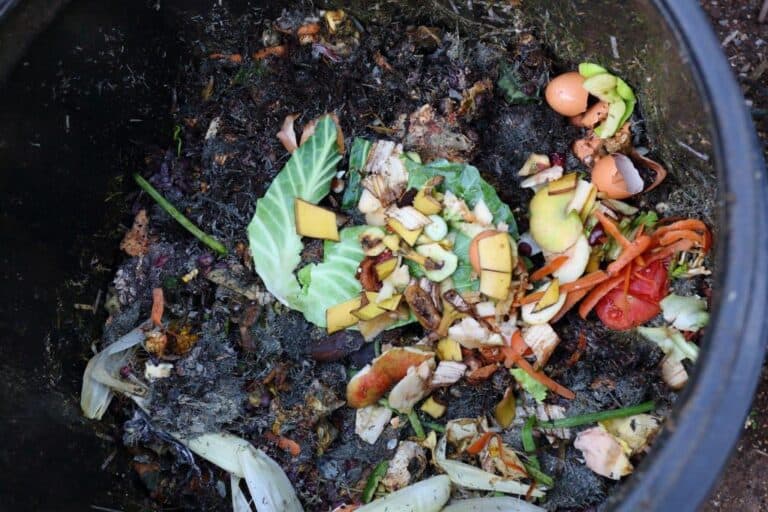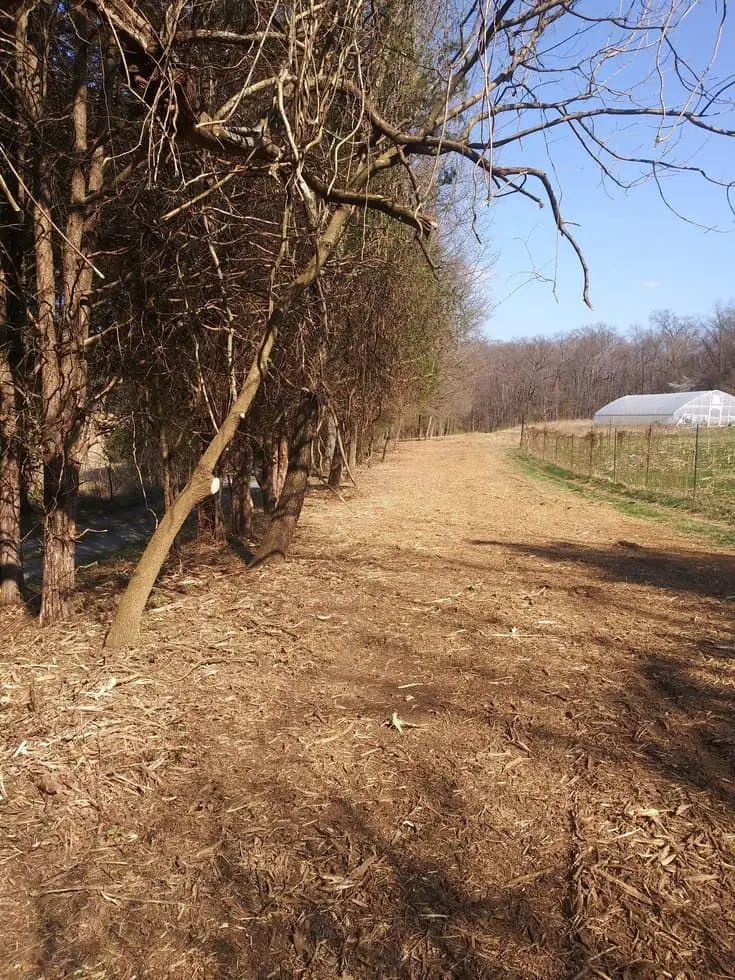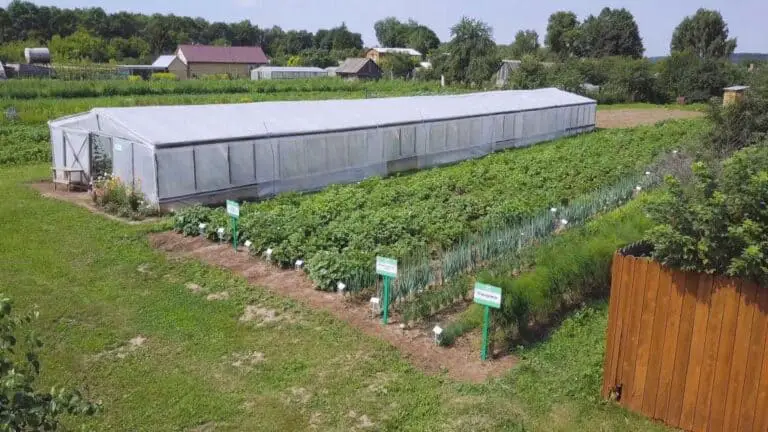How to Create Organic Manure From Kitchen Waste (Composting Made Easy)
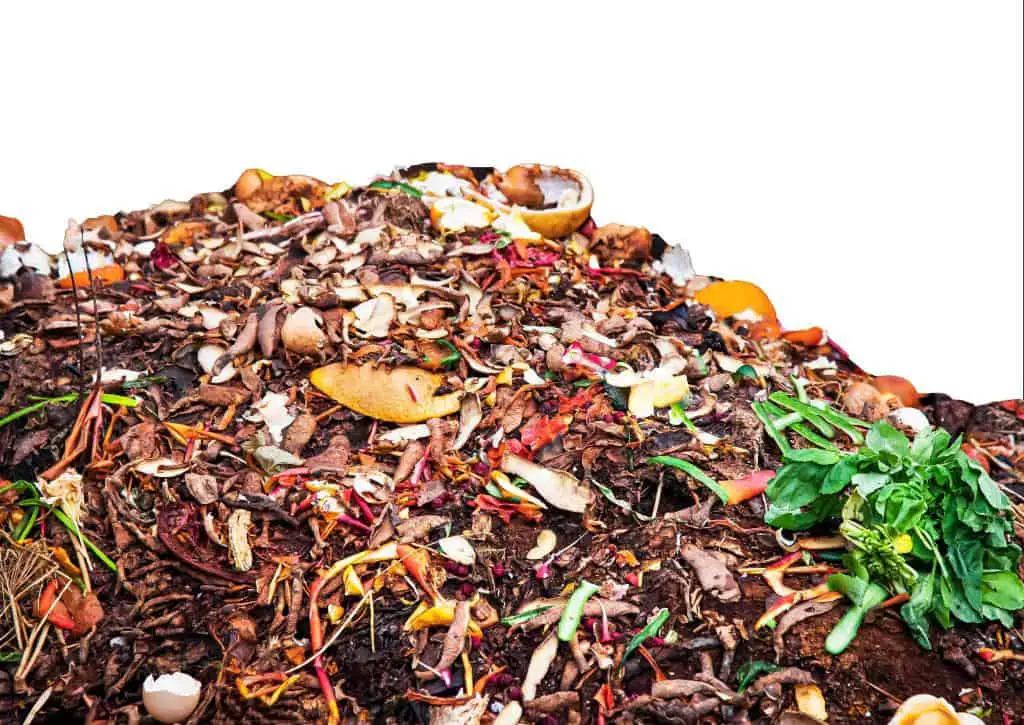
In today’s world, where sustainability and eco-friendliness take center stage, finding innovative ways to reduce waste and nurture our environment is crucial. One such remarkable practice is turning kitchen waste into organic manure, a simple yet incredibly impactful endeavor.
Imagine transforming those discarded fruit peels, coffee grounds, and vegetable scraps into a nutrient-rich elixir for your garden—a true marvel of recycling and sustainability.
This guide is your ticket to unveiling the secrets of creating organic manure from kitchen waste. We’ll embark on a journey that not only helps you minimize your ecological footprint but also enhances your garden’s vitality. From the materials you’ll need to the step-by-step composting process, we’ll explore it all.
Get ready to embrace the role of a sustainable gardener, reduce waste, and watch your plants thrive with the rich, homemade goodness of organic manure. So, let’s roll up our sleeves and dive into this green and enriching adventure!
Introduction to Organic Manure
Organic manure is a valuable resource in agriculture, cherished for its ability to enhance soil fertility naturally. Unlike synthetic fertilizers, which are chemical-based and can harm the environment, organic manure is derived from plant and animal sources, making it an eco-friendly choice. Its rich composition of organic matter, nutrients, and beneficial microorganisms makes it an essential component for sustainable farming.
One key advantage of organic manure is its capacity to improve soil structure. It adds essential nutrients like nitrogen, phosphorus, and potassium to the soil, which are crucial for plant growth. Furthermore, organic manure helps retain moisture and increases the soil’s ability to hold water, reducing the need for frequent irrigation. This not only conserves water but also promotes healthier root development and reduces soil erosion.
In addition to its soil-enriching properties, organic manure fosters a harmonious ecosystem in the soil. It encourages the growth of beneficial microorganisms that aid in breaking down organic matter, making nutrients more accessible to plants. As a result, crops nurtured with organic manure often display increased resilience to pests and diseases.
Why Choose Organic Manure from Kitchen Waste?
Before we dive into the nitty-gritty of making organic manure from kitchen waste, let’s understand why it’s an excellent choice for your garden. Here are some compelling reasons:
- Sustainable Waste Management: Organic manure production from kitchen waste is a sustainable approach to handling food scraps. It reduces the burden on landfills and promotes responsible waste management.
- Chemical-Free: Unlike commercial fertilizers that may contain chemicals, homemade organic manure is all-natural. You have control over what goes into your compost, ensuring a chemical-free solution for your plants.
- Nutrient-Rich: Kitchen waste, when properly composted, transforms into nutrient-rich manure. It provides essential minerals and organic matter that improve soil structure and plant growth.
- Cost-Effective: Creating organic manure at home saves you money on store-bought fertilizers. It’s a budget-friendly way to boost your garden’s vitality.
Now that we’ve established the benefits, let’s explore the step-by-step process of turning your kitchen waste into garden gold.
Materials You’ll Need
Before we start, gather the necessary materials:
- Compost Bin: You can use a simple compost bin or create your own using a container with a lid. Make sure it’s well-ventilated and has a lid to control moisture and odor.
- Kitchen Waste: Collect fruit and vegetable scraps, coffee grounds, eggshells, and non-oily leftovers.
- Dry leaves or Newspaper: These act as a carbon source, balancing the nitrogen-rich kitchen waste.
- Shovel or Pitchfork: You’ll need this for turning the compost.
- Watering Can: To keep the compost moist but not waterlogged.
Materials to Avoid in Your Kitchen Waste Compost
- Meat and Dairy Products: These can attract pests and lead to unpleasant odors in your compost.
- Fats and Oils: They can create a greasy, anaerobic environment in your compost, hindering decomposition.
- Diseased Plants: Avoid adding plants that have been diseased or infested with pests, as this may spread pathogens.
Types of Kitchen Waste Suitable for Composting
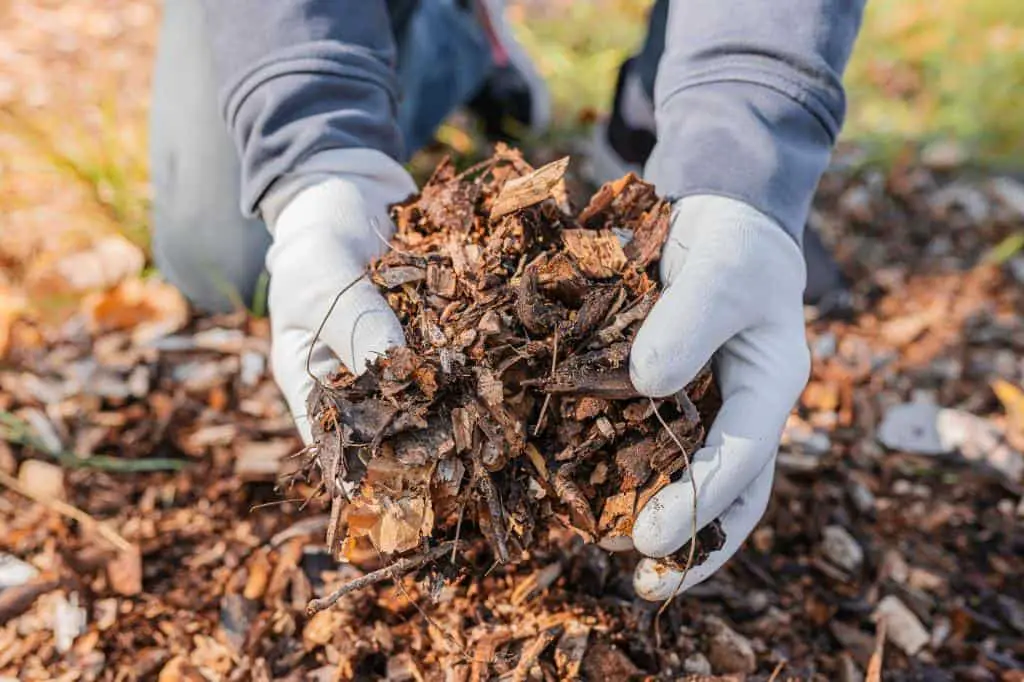
- Fruit and Vegetable Scraps: These are some of the best materials for composting. They contain essential nutrients that enrich the compost.
- Coffee Grounds: Used coffee grounds are an excellent source of nitrogen, a vital component of compost.
- Eggshells: Crushed eggshells add calcium to your compost, promoting healthy plant growth.
- Tea Bags: Most tea bags are biodegradable and can be composted, enriching your organic matter.
- Stale Bread: Leftover bread, pasta, and grains can be composted in moderation.
- Leaves and Yard Waste: While not kitchen waste, these materials can complement your compost pile with carbon.
How to Create Organic Manure From Kitchen Waste (Step-by-step)
Let’s break down the composting process into easy-to-follow steps:
Step 1. Choose a Suitable Location
Pick a convenient spot for your compost bin. It should have good drainage and be easily accessible year-round. Avoid placing it too close to your home to prevent unwanted odors.
Step 2. Set Up Your Compost Bin
Line the bottom of your bin with dry leaves or newspaper. This provides the necessary carbon balance for your compost.
Step 3. Layering
Begin by adding a layer of kitchen waste. Break down larger pieces to speed up decomposition. Alternate kitchen scraps with layers of dry leaves or newspaper.
Step 4. Maintain the Right Balance
Keep a good balance between “green” (nitrogen-rich) and “brown” (carbon-rich) materials. Green materials include kitchen scraps, while brown materials include dry leaves. A 3:1 ratio of green to brown is ideal.
Step 5. Keep It Moist
Your compost should feel like a damp sponge. Water it lightly when it starts to dry out. Avoid overwatering, as this can lead to odor issues.
Step 6. Turn the Compost
Every few weeks, use a shovel or pitchfork to turn the compost. This aerates it and helps break down materials more quickly.
Step 7. Patience Pays Off
Composting takes time—typically several months. You’ll know it’s ready when the compost is dark, crumbly, and has a rich, earthy smell.
Harvesting and Storing the Finished Manure
Once you’ve determined that your compost is ready, it’s time to harvest and store it properly.
Here are the steps to follow:
- Stop Adding New Material: Before harvesting, stop adding new kitchen waste to the compost pile. This allows the remaining materials to finish breaking down.
- Choose Your Harvest Method: There are a few ways to harvest your compost:
- Screening: Use a compost screen to sift out any remaining large particles.
- Layer by Layer: If you have a multi-bin system, you can remove the finished compost from the bottom bin.
- Remove the Top Layer: If you have a single bin, remove the top layer of uncomposted material and set it aside. The finished compost should be beneath this layer.
- Store the Compost: Once harvested, store your compost in a cool, dry place. Avoid sealing it in an airtight container, as compost needs airflow to remain healthy.
- Use as Needed: Your kitchen waste manure is now ready to use in your garden or for other applications. Start reaping the benefits of your eco-friendly efforts!
Using Kitchen Waste Manure in Your Garden
Now that you have your precious kitchen waste manure, it’s time to put it to good use in your garden. Let’s explore how to maximize the benefits.
Benefits of Using Kitchen Waste Manure in Gardening
Kitchen waste manure offers a plethora of advantages for your garden:
- Nutrient-Rich: It’s packed with essential nutrients like nitrogen, phosphorus, and potassium that promote plant growth.
- Improved Soil Structure: Compost helps improve soil structure, making it easier for plant roots to access nutrients and water.
- Water Retention: Compost enhances the soil’s water-holding capacity, reducing the need for frequent watering.
- Reduced Erosion: Adding compost to your garden helps prevent soil erosion, keeping your garden beds intact.
Incorporating Manure into the Soil
To maximize the benefits, follow these steps for incorporating kitchen waste manure into your garden soil:
- Prepare the soil: Ensure your garden beds are prepared by removing weeds and loosening the soil.
- Spread Compost: Spread a layer of kitchen waste manure evenly over the soil surface. The thickness of the layer depends on the quality and quantity of your compost.
- Mix Thoroughly: Using a garden fork or tiller, mix the compost into the soil to a depth of 6-8 inches (15-20 cm). This ensures that the nutrients are well-distributed.
- Planting: After mixing, you can plant your seeds or transplants directly into the amended soil.
Application Rates for Different Plants
Different plants have varying nutrient requirements, so it’s essential to adjust your kitchen waste manure application rates accordingly. Here are some general guidelines:
- Flowering Plants: Flowering plants, like roses or petunias, benefit from compost. Apply a 1-2 inch (2.5-5 cm) layer around the base of the plant.
- Vegetable Gardens: Vegetables thrive with compost. Apply 2-4 inches (5-10 cm) of compost evenly over the garden bed before planting.
- Trees and Shrubs: Established trees and shrubs can benefit from a yearly application of compost around their root zones. Apply a 1-2 inch (2.5-5 cm) layer.
- Lawns: For lawns, topdressing with a thin layer (about 1/8 to 1/4 inch or 0.3-0.6 cm) of compost can improve soil health.
Now that your garden is nourished with kitchen waste manure, let’s explore some exciting alternative uses for this valuable resource.
Alternative Uses for Kitchen Waste Manure
Kitchen waste manure is versatile and can be put to use beyond traditional gardening. Let’s explore some creative ways to use it:
Potting Mixtures
Consider adding compost to your potting mixtures soil for container gardening. It improves water retention and nutrient availability, leading to healthier container plants.
Lawn Care
Boost your lawn’s health by spreading a thin layer of compost on the grass. It helps improve soil structure and encourages strong root growth.
Mulch
Use kitchen waste manure as mulch around trees, shrubs, and garden beds. It helps keep moisture, suppress weeds, and maintain a consistent soil temperature.
Seed Starting
Create a nutrient-rich starting mix for your seeds by blending compost with potting soil. This provides young seedlings with essential nutrients from the start.
Houseplants
Houseplants also benefit from compost. Mix it into your indoor plant’s soil to enhance its health and vitality.
Troubleshooting Common Issues in Kitchen Waste Composting
While kitchen waste composting is relatively straightforward, challenges can arise along the way. Let’s address some common issues and provide solutions to keep your composting journey smooth.
Pests
- Problem: Pests like flies or rodents are attracted to your compost pile.
Solution: Avoid adding meat, dairy, or oily materials to deter pests. Ensure your compost bin or pile is securely sealed to keep critters out.
Odors
- Problem: Your compost pile emits foul or unpleasant odors.
Solution: Properly balance green and brown materials, aerate your compost regularly, and avoid overwatering. Turning the pile helps mitigate odors.
Slow Decomposition
- Problem: Your compost pile isn’t decomposing as quickly as expected.
Solution: Check the balance of materials—add more green materials if it’s too brown, and vice versa. Ensure adequate aeration and moisture levels.
Dry or Overly Wet Compost
- Problem: Your compost is too dry or excessively wet.
Solution: Adjust moisture levels by adding water (for dry compost) or incorporating dry materials like leaves (for wet compost).
| Also see: How to Compost Without a Composter |
Conclusion
In conclusion, creating organic manure from kitchen waste is a sustainable and rewarding practice that benefits both your garden and the environment. By monitoring, harvesting, and using your kitchen waste manure effectively, you can enhance the health of your garden and reduce your carbon footprint.
Considering alternative uses, maintaining a sustainable composting routine, and troubleshooting common issues will help you become a primary composter in no time. So, roll up your sleeves, embrace eco-friendliness, and watch your garden thrive with the power of kitchen waste manure.
FAQs on Eco-Friendly Kitchen Waste Management
What kitchen waste items are best for making organic manure?
The best kitchen waste items for making organic manure include fruit and vegetable scraps, coffee grounds, eggshells, and non-oily leftovers.
How long does it take to create organic manure from kitchen waste?
Creating organic manure from kitchen waste typically takes several months, depending on various factors like the composting method, temperature, and materials used.
What are the common mistakes to avoid when composting kitchen waste?
Common mistakes to avoid when composting kitchen waste include adding meat and dairy, over-watering, neglecting the carbon-nitrogen balance, and insufficient aeration.
Can I use kitchen waste manure for indoor plants?
Yes, you can use kitchen waste manure for indoor plants, but it’s essential to ensure proper composting to avoid odor issues.
Is it safe to compost citrus or onion peels in kitchen waste?
Composting citrus or onion peels in kitchen waste is safe, as long as they are part of a balanced compost mix.
How often should I turn my kitchen waste compost pile?
Turn your kitchen waste compost pile every few weeks to aerate it and facilitate decomposition.
What should I do if my compost pile develops a foul odor?
If your compost pile develops a foul odor, it’s a sign of imbalanced materials. To fix it, add more brown materials, like dry leaves, and turn the compost to improve aeration.

